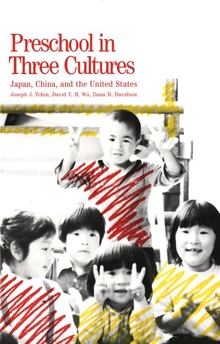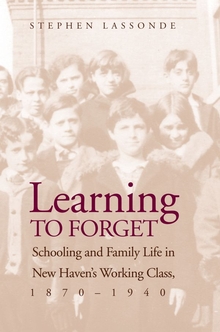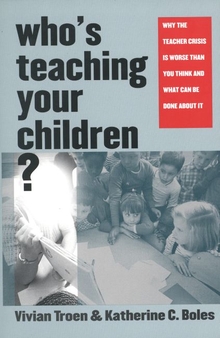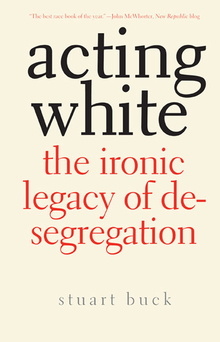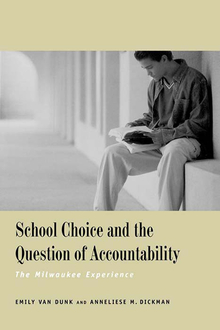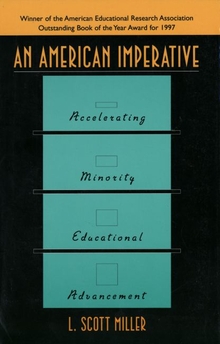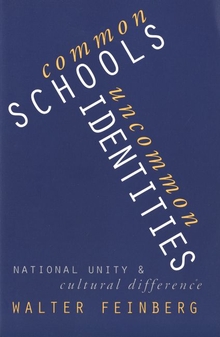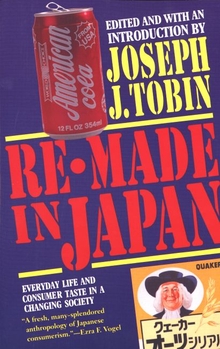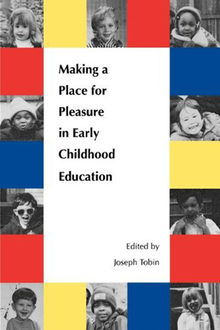Preschool in Three Cultures
WARNING
You are viewing an older version of the Yalebooks website. Please visit out new website with more updated information and a better user experience: https://www.yalebooks.com
Japan, China and the United States
Joseph J. Tobin, David Y.H. Wu, and Dana H. Davidson
"[An] important study of the way preschools both reflect and affect social change. . . . A must read for those who take social issues seriously."—Carole C. Kemmerer, Los Angeles Times
As the numbers of mothers in the workforce grows, the role of the extended family diminishes, and parents feel under greater pressure to give their children an educational headstart, industrialized societies are increasingly turning to preschools to nurture, educate, and socialize young children. Drawing on their backgrounds in anthropology, human development, and education, Tobin, Wu, and Davidson present a unique comparison of the practices and philosophies of Japanese, Chinese, and American preschool education and discuss how changes in childcare both reflect and affect larger social change.
"A vivid and persuasive picture of cultural variation in attitudes toward young children."—William Kessen, author of Childhood in China
"This book informs the reader that the behavioral and attitudinal traits educators and parents hope to develop in the next generation can be observed in the way children are treated in preschool. While this is hardly a revolutionary idea, the evidence presented to support this proposition make this book extremely valuable. By videotaping typical events in Chinese, U.S. and Japanese preschools the authors were able to get the reactions of educators and parents to what they saw on the tapes. Their reactions show that while Americans value individuality, Japanese value the ability to get along with others. The Chinese, on the other hand, value discipline and selflessness. The differences in class size and pedagogical methods of the teachers are rendered understandable given the differences in values among the three societies. Tobin, Wu,. and Davidson make a convincing case for their argument that schools reflect the ideology and beliefs of the society in which they are located. All those who criticize American schools for their shortcomings should read this book. According to these authors, American schools are what they are because they reflect our society's values."—Yoshimitsu Takei, Associate Professor of Education and Sociology, Pennsylvania State University
"[An] important study of the way preschools both reflect and affect social change. . . . An enticing journey. . . . Tobin et al have some strong and thought-provoking evidence that demonstrates that preschools may be at the frontline of conserving social structures and values. . . . A must read for those who take social issues seriously."—Carole C. Kemmerer, Los Angeles Times
"This book should be required reading for professionals in early education and makes thought-provoking reading for anyone aware of his or her own cultural blinkers."—Penelope Leach, New York Times Book Review
"These videotapes offer detailed perspectives of the rich and varied interactions of the children and adults, the way time and space are utilized, and the ways the teachers enact their roles. Such specific examples of a day in the life of each school for all observers to respond to is a particular strength of the study. There are no generalities here; the material for observation is specific and made available in the same form for all to see. . . . These chapters are interesting, informative, and provocative as each presents the first voices' rationale for their practices, the second voices' agreements and disagreements with the first voices, and the third voices' comments and evaluation. . . . A sense of time, place, and social class is interwoven throughout this well-documented book. . . . This entire volume lifts our cultural blinders and raises questions about our own child-rearing practices and teaching methods. It provides a perspective on all three cultures and an impetus to seek answers about our own culture through reflection and further research. Those interested in child development, cultural anthropology, and family studies will find much of value in this excellent book."—June Patterson, Journal of Asian Studies
"The task of preschool education, according to the authors, is to help preserve the society, not transform it. Their argument is convincing. The book is readable, informative, and provocative. The photographs scattered throughout are well selected and effectively support the text. Highly recommended for graduate and undergraduate students, but particularly for preschool educators and parents."—Choice
"Preschool in Three Cultures is a beautifully layered book in which the authors, beginning with 20-minute video tapes of three preschools, create an intricate set of commentaries. As we react ourselves to the preschools the authors describe, and as we read the reactions of Chinese, Japanese, and U.S. educators, the familiar become strange. Self-evident principles in American schools—for example the importance of close adult supervision—become less self-evident, less 'natural.' We come to see our preschools less as 'child-centered' havens and more as institutions that clearly reflect ou0r culture's image of childhood."—Thomas Newkirk, University of New Hampshire
"A profound and totally unique comparative culture book. We hope that it is widely read; the video is a must too. Tobin et al, have proposed a new strategy for the American preschool constituency, one which will enable us to create a new synthesis of Old World and New World values."—Emily Firlik, Director of YWCA's Children Center, and Russell Firlik, Sacred Heart University
"It is an excellent teaching tool, providing students with opportunities not only to learn about other cultures but to reflect on their own."—Kathleen Hulbert, University of Lowell
"This is the first truly comparative ethnography on early education that brings the three cultures into lively contrast. Specialists and beginners alike will be fascinated, as my students were, by the book's brilliant creativity in integrating the audiovisual and written information. The one-hour videotape, just right for class use, will surely spur students to read the whole book."—Takie Sugiyama Lebra, University of Hawaii
"Preschool in Three Cultures is a book of innovative methodology and subtle insight. Because it is deeply rather than superficially a comparative and inter-cultural study, no single way of doing things and no single voice is privileged. As a result, it has a provocative and unsettling capacity to force us to reexamine our deeply held assumptions about our own culture; and what we mean to achieve when we place young children in preschools. It also forces us to think about what we are doing when we evaluate (whether covertly or overtly) the actions and attitudes of others."—Margaret Nelson, Middlebury College
"A fascinating look at the cultural contexts of preschool as seen through the eyes of parents, educators, and child development experts both from within and outside the societies compared. The research offers a dramatic demonstration of the power of culture to transform the meanings given to everyday socialization practices and of the profound cultural differences existing in views of the child and of child development. The work is vital reading for researchers and practitioners in the fields of developmental psychology, education, sociology, and anthropology."—Joan G. Miller, Yale University
"Tobin et al's work is a milestone in research on early schooling. Teachers and researchers, both future and present will find Preschool in Three Cultures a very useful and stimulating experience. Simply put, this is important work."—Daniel J. Walsh, University of Illinois at Urbana-Champaign
"Preschool in Three Cultures is a fascinating and provocative depiction of early childhood education as it is perceived by parents, implemented by teachers, and experienced by the children of three distinct cultures. The book is written in a fashion that makes it enjoyable reading for anyone interested in cultural diversity and young children. For students and professionals of child development and early education, it is especially informative and timely, given the increasingly heterogeneous nature of today's society (and tomorrow's classrooms). Perhaps the book's greatest value is the way in which, through the presentation of three culturally dissimilar points of view, it challenges the reader to reconsider the values and beliefs we hold so dear regarding optimal settings—indeed, optimal developmental goals—for young children. The accompanying video reiterates these points in a thoughtful and lucid fashion, and leaves the audience primed for discussion. The book and video combine to provide a critical catalyst for reflection and evaluation of educational goals and objectives among students of child development and early education. I intend to continue using both the book and the video regularly in my teaching, and I am grateful to Drs. Tobin, Wu, and Davidson for providing me with such a valuable teaching tool."—Rebecca S. New, University of New Hampshire
"I use Preschool in Three Cultures and the accompanying videotape in courses on cross-cultural differences in child-rearing. Students comment that differences they have read about American and Japanese socialization practices come alive when they view the tape and read this book. The book combines a broad social-cultural look at the differences with a microanalytic description of what these differences mean in face to face interaction between adults and children. It is the most valuable teaching tool I have found to convey this information."—Mary Martini, University of Hawaii at Manoa
"This innovative study shatters many of our conceptions of preschool education in these three societies. . . . A rich texture of reactions to observed phenomena, which clarifies the meaning of particular behavior both to those in the cultures and to those outside. . . . In this study we receive a systematic and rich illustration of the various dimensions of preschool culture. I applaud this innovative approach and expect that most readers will find it highly stimulating."—William K. Cummings, Contemporary Sociology
"The study is exceptional in that it is ethnographic and qualitative rather than psychometric and quantitative. . . . [A] fascinating book. Throughout, Tobin and his colleagues provide many illuminating examples of how cultural values penetrate all facets of early childhood education. . . . The authors also make very clear the dangers of interpreting teaching practices without considering their relation to the cultural context. . . . Perhaps more than anything else, this book reveals how much of what we regard as sound, universal principles of pedagogy are, in fact, expressions of an individual culture's values and biases."—David Elkind, International Journal of Qualitative Studies in Education
"Using innovative methodology and yielding fresh insights, Preschool in Three Cultures examines institutional child care in China, Japan, and the United States. . . . This book provides a significant service to scholarly research in the complex and revealing multivocal methods employed."—Merry I. White, American Journal of Sociology
"This is a fascinating book. It offers fresh insight into how young children learn in three contrasting cultures. Authors' view of different educational values and their innovative research methods are ingenious and fruitful. Everyone concerned about the education of young children should read this book."—Jackie Chen, Tufts University
"Preschool in Three Cultures offers new insight into the education of young children in China and elsewhere. If the book's outline of research methodology seems a little academic at first—read on, for it is an approach which gives a voice to parents, teachers, and educationalists in all three countries. . . . Combined with the authors' analysis of context this makes the book very readable and gives it also a reflective quality. . . . The book offers much more than can be outlined in a brief review. In considering preschools in three different cultures it also provides a context in which to view provision in Britain."—Tony Woods, China Now
"As in the best ethnographic research—and surely this qualifies for that accolade—the study raises a number of hypotheses about the impact of educational experiences on children. . . . This is a rich book, filled with data, insights, and speculation. The authors are careful to buttress their speculations with extensive references to the scholarly work of others as well as to their own. This reviewer was impressed by their success at bringing this scholarship to bear on their own findings and by their ability to clarify the interplay of culture and schooling in so interesting a fashion."—Nicholas Anastasiow, Educational Researcher
"Preschool in Three Cultures is an innovative, ethnographic study of preschools in China, Japan, and the United States. The book compares the roles of preschools in child socialization and cultural transmission. . . . This book not only studies the three cultures' preschools but it examines how preschools both reflect and affect the social and cultural change taking place in these countries. . . . The most significant contribution of this book that I find is its approach for a comparative study. . . . Preschool in Three Cultures is an exciting and persuasive study of early childhood education. It is a significant work for people studying these specific cultures, human development, and organizations."—Fujita Mariko, Journal of Japanese Studies
"This was one of the most interesting books I have read in some time, the subject was fascinating, the research was well written up and the conclusion was sensible. . . . The book admirably met its aim. . . . The book would make interesting and useful reading for teachers, and others, involved in the education of young children. . . . [However] the book is of sufficient interest and easy to read and can be recommended as general reading for anyone with an interest in multicultural perspective."—Berenice Arkinson, Journal of Contemporary Asia
"The book makes fascinating reading. The preschools come alive, as does the extent of disagreement as well as consensus in approaches to preschool education within and between selected countries. . . . The reader not only gains a picture of differences in preschools within and between countries and in their child rearing and cultural attitudes towards young children but is also stimulated to think again about assumptions in preschool provision and child rearing practices in his or her own country."—Margaret M. Clark, Educational Psychology
"The writers' ethnographical orientation into the preschool is broad. . . . [This book] broadens understanding of how political and other value systems are transmitted into our child-rearing practices, which we usually see traced from educational theories. I highly recommend this book as a part of preschool teacher training to help students analyze the child rearing they are involved in and to understand a broader, ecological view of education."—Eeva Huttunen, Comparative Education Review
Publication Date: January 23, 1991

